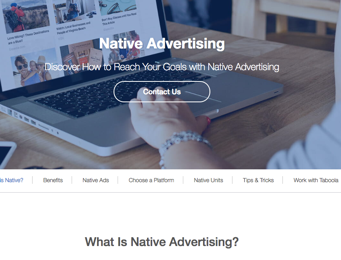Domain and page authority Based principally on backlinks, your score will influence your rankings. “Native content” ranks No. As for “native content,” Taboola may want to use that on another page or create a new page. The business only has a few good rankings for low-volume keyword phrases. 14 with 135,000 monthly searches on Google. Keep in mind that many featured snippets are for keyword phrases with low volume. Create and modify content for SEO Not all content will have SEO implications. I’m all about what I call the SEO keyword “sweet spot.” But you have no business going after keyword phrases searched 1,000 times a month when you can’t even manage to rank on the first page of Google for keywords people search for 50 times. Look at your keywords and see how many are on the first page of Google. It’s now ranking No.

Strap in tight. 2019 will be a rough ride for keyword rankings and SEO professionals will feel the squeeze each time Google downplays traditional search engine results.
Google already promotes no-click search results, often providing answers without the need to click for more details.
The no-click (also known as zero click) searches will remain a factor for marketers. Referencing data from Jumpshot, Rand Fishkin of SparkToro last year found that 61.5% of Google mobile searches are no-click (34.3% with desktop searches).
Additionally, voice search will have an impact, especially with smart speaker products like Google Home and Amazon Echo. Econsultancy does a good job sorting through voice search projection interpretations.
If your natural search engine traffic took a hit last year, expect more of the same unless you take steps to recover from traffic dips. Even if you’re fine now, you might want to reinforce your footing.
1. Learn to appreciate that SEO is like a giant poker game
Picture a virtual table with thousands of people playing at the same time in scores of places.
In this game, instead of collecting winnings from your fellow players, you’re seeking Google rewards. With each of your “keyword” hands, Google snickers at what you’re holding or rewards you with the top positions among the search engine results pages (SERPs).
When you target another keyword phrase, you’re dealt a new set of cards. Unlike real poker, this hand is not random. You end up with cards based on what you bring to the table.
What are your SEO strengths that will give you a good hand?
Rather than list all of the ranking factors, I’ll cite a few that should shape your keyword choices.
Domain and page authority
Based principally on backlinks, your score will influence your rankings. Moz tracks the data, and websites fall somewhere between 1 and 100. Do you even know how your site scores? Higher scores increase the odds of higher rankings.
Content and website size
Websites with some pages (like maybe 10 or 20) won’t fare as well as websites with hundreds or thousands of pages, which signal to search engines that they’re serious players. More pages make it easier for websites to play up key themes, attract backlinks, and add additional pages to target coveted keyword phrases.
Domain name
Online marketers debate its value toward your rankings. My sense is that its importance has waned, but it’s clearly a factor. If your domain includes part of your keyword phrase, you have an edge.
Other SEO essentials
You can’t afford to have issues with basic website structure. Is all of your content indexed? What about the following:
- Content headers: Do you use H1 tags with the text?
- SEO page titles: Can you customize them on a per-page basis?
- Page URLs: Can you keep them short and use dashes to separate words?
To underscore the possibilities for 2019, I identified three companies through LinkedIn to see how well they’re already doing with SEO and to show ways we can learn from their efforts (good or bad).
Catalant – Identification of talent through technology and programs for companies
Taboola – Content discovery platform
Jellyvision – Creators of ALEX, employee communication software
Taboola is probably in the best shape with a domain authority of 72 (Jellyvision is 43 and Catalant is 36).

Although Taboola has first-page rankings on Google, several keywords aren’t hitting the mark and the best ones could do better.
Taboola (like many websites) would benefit from iterative SEO, meaning its team should make distinct revisions to the SEO page titles, content headers, and other text to see whether rankings improve without hurting their top positions. But they shouldn’t make too many changes at one time or they won’t know what worked and could disrupt rankings. They could monitor rankings after testing keyword-placement scenarios. (Most website pages are indexed within days or a couple weeks.)
For example, Taboola might avoid going after both “native content” and “native advertising” on the same page. “Native content” ranks No. 11 with 590 searches, but “native advertising” is No. 12 with 5,400 monthly searches. Both phrases rank well, but “native advertising” may not get much higher with “native content” having a strong presence.
Fortunately, Taboola used an H1 tag with “native advertising,” but it’s possible that phrase is on the page too many times (sorry, there isn’t a foolproof formula). With the high search volume, it might be worth tinkering with the text and the number of keyword references over a couple months.

As for “native content,” Taboola may want to use that on another page or create a new page. Adding content is always a good approach to support a target keyword phrase.
Jellyvision should seriously consider that option. The business only has a few good rankings for low-volume keyword phrases. I’m actually a fan of keywords that aren’t searched often. They can yield good prospects for sales to help the bottom line. But more pages are needed.
The website has a strong collection of content. Jellyvision understands how businesses can convey critical information to employees. But that content often doesn’t relate to relevant keyword phrases. Sometimes its content keywords aren’t searched at all.
…

COMMENTS